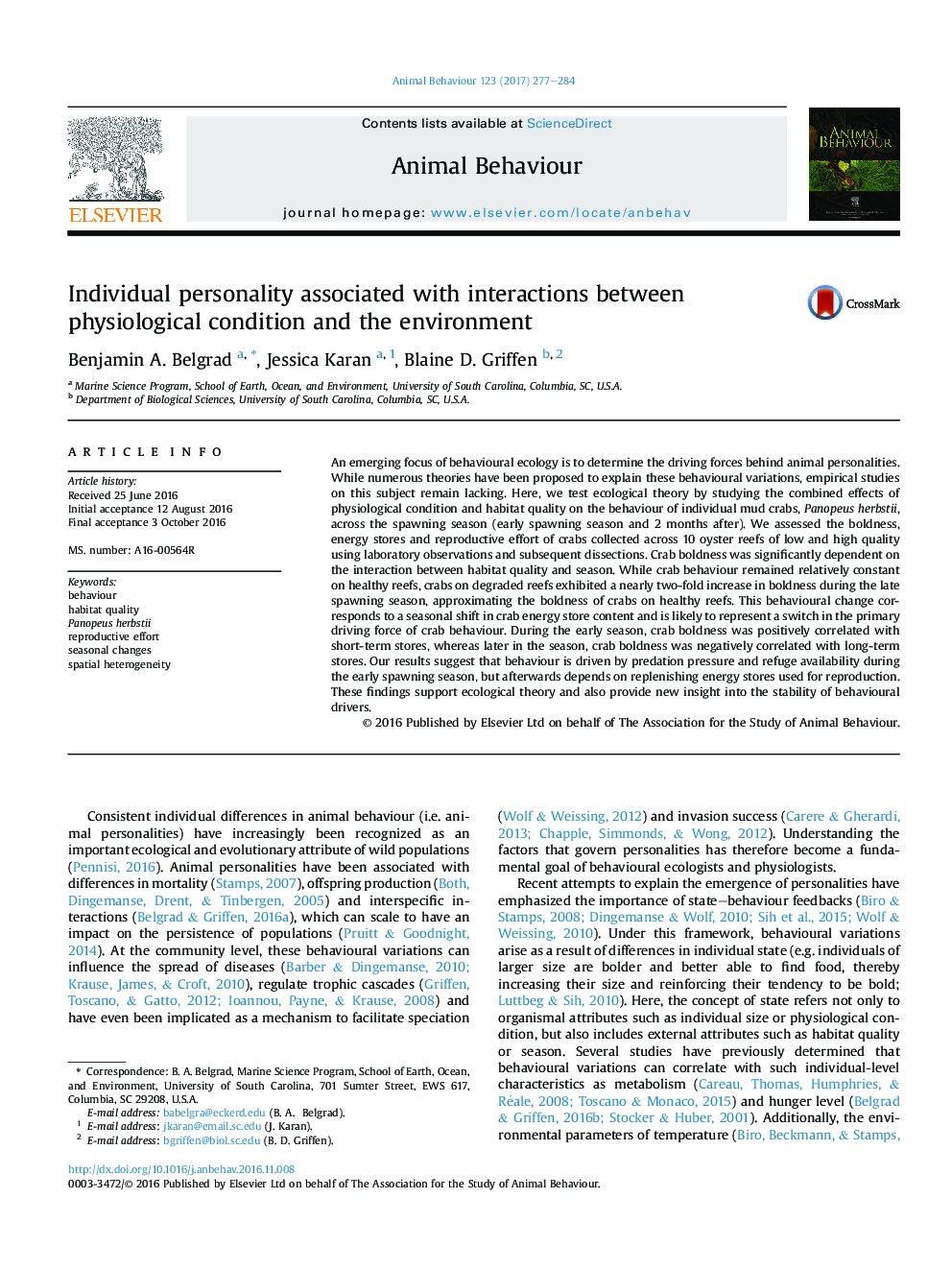| Article ID | Journal | Published Year | Pages | File Type |
|---|---|---|---|---|
| 5538592 | Animal Behaviour | 2017 | 8 Pages |
Abstract
An emerging focus of behavioural ecology is to determine the driving forces behind animal personalities. While numerous theories have been proposed to explain these behavioural variations, empirical studies on this subject remain lacking. Here, we test ecological theory by studying the combined effects of physiological condition and habitat quality on the behaviour of individual mud crabs, Panopeus herbstii, across the spawning season (early spawning season and 2 months after). We assessed the boldness, energy stores and reproductive effort of crabs collected across 10 oyster reefs of low and high quality using laboratory observations and subsequent dissections. Crab boldness was significantly dependent on the interaction between habitat quality and season. While crab behaviour remained relatively constant on healthy reefs, crabs on degraded reefs exhibited a nearly two-fold increase in boldness during the late spawning season, approximating the boldness of crabs on healthy reefs. This behavioural change corresponds to a seasonal shift in crab energy store content and is likely to represent a switch in the primary driving force of crab behaviour. During the early season, crab boldness was positively correlated with short-term stores, whereas later in the season, crab boldness was negatively correlated with long-term stores. Our results suggest that behaviour is driven by predation pressure and refuge availability during the early spawning season, but afterwards depends on replenishing energy stores used for reproduction. These findings support ecological theory and also provide new insight into the stability of behavioural drivers.
Related Topics
Life Sciences
Agricultural and Biological Sciences
Animal Science and Zoology
Authors
Benjamin A. Belgrad, Jessica Karan, Blaine D. Griffen,
